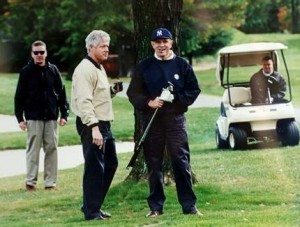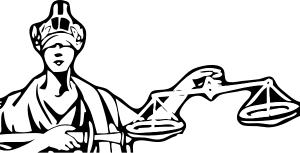During his return journey from Strasbourg, where he addressed both the European Parliament and the Council of Europe, Pope Francis answered questions posed by the journalists who accompanied him on the flight. The questions and the Holy Father's answers are published below.
Q: “Your Holiness addressed the European Parliament with pastoral works that may also be regarded as political words, and which may be linked, in my opinion, to a social-democratic stance - for example, when you say that we must ensure that the true expressive force of populations is not removed by multinational powers. Could we say that you are a social-democrat Pope?”
Pope Francis: “This would be reductive. It makes me feel as if I am part of a collection of insects: 'This is a social-democratic insect ...'. No, I would say not. I don't know if I am a social-democrat Pope or not. I would not dare to define myself as belonging to one side or another.
I dare say that this comes from the Gospel: this is the message of the Gospel, taken up by the social doctrine of the Church. In reality, in this and in other things – social and political – that I have said, I have not detached myself from the social Doctrine of the Church. The social Doctrine of the Church comes from the Gospel and from Christian tradition. What I said – the identity of the people – is a Gospel value, is it not? In this sense, I say it. But you have made me laugh, thank you!”
Q: “There is almost no-one on the streets of Strasbourg this morning. The people say they are disappointed. Do you regret not visiting the Cathedral of Strasbourg, that celebrates is millennium this year? And when will you make your first trip to France, and where? Lisieux, perhaps?”
Pope Francis: “No, it is not yet planned, but one should certainly go to Paris. Then, there is a proposal to go to Lourdes. I have asked to visit a city where no Pope has yet been, to greet the citizens. But the plan has not yet been made. No, for Strasbourg, a visit to the cathedral was considered but it would have mean already making a visit to France, and this was the problem”.
Q: During your address to the Council of Europe I was struck by the concept of transversality, especially with reference to your meetings with young politicians in various countries, and indeed you spoke of the need for a sort of pact between generations, an intergenerational agreement at the margins of this transversality. Also, if I may ask, is it true that you are devoted to St. Joseph, and have a statue of him in your room?”
Pope Francis: “Yes, it is true. Whenever I have asked something of St. Joseph, he has granted it to me. The fact of 'transversality' is important. I have seen in dialogue with young politicians in the Vatican, from different parties and nations, that they speak with a differetn music, that tends towards transversality, and this is valuable. They are not afraid of coming out of their own territory, without denying it, but coming out in order to engage in dialogue. They are courageous! I believe that we must imitate this, along with intergenerational dialogue. This tendency to come out to find people of other origins and to engage in dialogue: Europe needs this today”.
Q: “In your second discourse, to the Council of Europe, you spoke about the sins of the sons of the Church. I would like to know if you have received the news on the events in Granada [alleged sexual abuse of minors by priests in the archdiocese, Ed.], that in a certain sense you brought to light...”
Pope Francis: “I received the news – it was sent to me, I read it, I called the person and I said, 'Tomorrow you must go to the bishop', and I wrote to the bishop asking him to begin work, to start the investigation and go ahead. How did I receive the news? With great pain, with very great sadness. But the truth is the truth, and we cannot hide it”.
Q: “In your addresses in Strasbourg, you spoke frequently of both the threat of terrorism and the threat of slavery: these are attitudes that are also typical of the Islamic State, which threatens much of the Mediterranean, which threatens Rome and also threatens you personally. Do you think it is possible to engage in dialogue with these extremists, or do you think this is a lost cause?”
Pope Francis: “I never give something up as a lost cause: never. Perhaps dialogue is not possible, but never close the door. It is difficult, one might say almost impossible, but the door is always open. You have used the word 'threaten' twice: it is true, terrorism is a threat. … But slavery is a real situation embedded in the today's social fabric, and has been for some time. Slave labour, human trafficking, the trade in children … it is a crisis! We must not close our eyes to this. Slavery, today, is a reality, the exploitation of people … And then there is the threat of these terrorists.
But there is another threat, and it is State terrorism. When the situation becomes critical, and each State believes it has the right to massacre the terrorists, many who are innocent fall prey alongside the terrorists. This is a form of high-level anarchy that is very dangerous. It is necessary to fight terrorism, but I repeat what I said during my previous trip: when it is necessary to stop an unjust aggressor, it must be done with international consensus”.
Q: “In your heart, when you travel to Strasbourg, do you travel as Peter's Successor, as the bishop of Rome, or as the archbishop of Buenos Aires?”
Pope Francis: “As all three, I think. My memory is that of the archbishop of Buenos Aires, but I am no longer in that role. Now I am the bishop of Rome and Peter's Successor, and I think that I travel with this memory but with these realities; I travel with all these things. Europe worries me at the moment; it is good for me to go ahead in order to help, as the bishop of Rome and Peter's Successor; in this respect I am Roman”.


